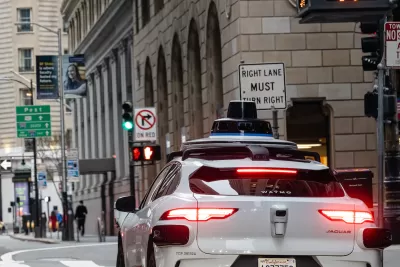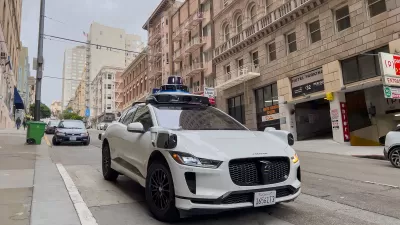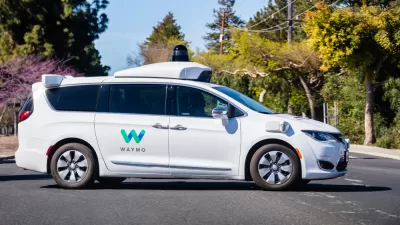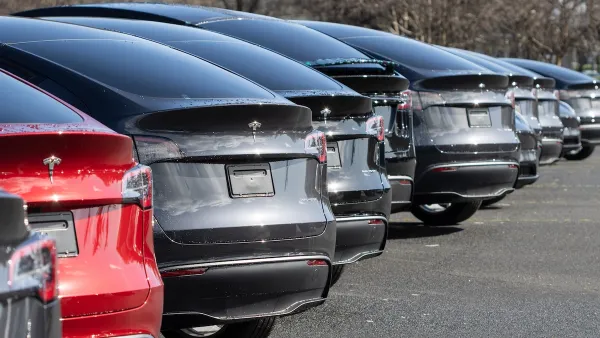Waymo’s autonomous vehicles can begin picking up passengers in Los Angeles and San Francisco in spite of opposition from local officials.

Despite local concerns and recent federal investigations into the safety of autonomous cars, the Consumer Protection and Enforcement Division of the California Public Utilities Commission gave Waymo the go-ahead to operate autonomous taxis in Los Angeles and San Francisco.
In an article in Smart Cities Dive, Dan Zukowski notes that ‘Waymo, which already operates paid driverless robotaxi service in San Francisco and Phoenix, can begin service in the additional areas immediately following the CPUC’s determination that local officials’ objections do “not state proper grounds for protest.’” Local officials say they want more decision-making power in how and when robotaxis are deployed in their cities. In a letter to the CPUS, Los Angeles Mayor Karen Bass wrote, “local jurisdictions like Los Angeles have had little to no input in AV deployment and are already seeing significant harm and disruption.”
While, according to the company, the crash rate for Waymo vehicles is 85 percent lower than human-operated vehicles, multiple high-profile crashes have drawn concern from city leaders and federal regulators.
Last fall, another autonomous car manufacturer, Cruise, suspended its driverless operations as part of an effort to boost public trust.
FULL STORY: Robotaxi expansion approved in California over local objections

Planetizen Federal Action Tracker
A weekly monitor of how Trump’s orders and actions are impacting planners and planning in America.

Maui's Vacation Rental Debate Turns Ugly
Verbal attacks, misinformation campaigns and fistfights plague a high-stakes debate to convert thousands of vacation rentals into long-term housing.

San Francisco Suspends Traffic Calming Amidst Record Deaths
Citing “a challenging fiscal landscape,” the city will cease the program on the heels of 42 traffic deaths, including 24 pedestrians.

Defunct Pittsburgh Power Plant to Become Residential Tower
A decommissioned steam heat plant will be redeveloped into almost 100 affordable housing units.

Trump Prompts Restructuring of Transportation Research Board in “Unprecedented Overreach”
The TRB has eliminated more than half of its committees including those focused on climate, equity, and cities.

Amtrak Rolls Out New Orleans to Alabama “Mardi Gras” Train
The new service will operate morning and evening departures between Mobile and New Orleans.
Urban Design for Planners 1: Software Tools
This six-course series explores essential urban design concepts using open source software and equips planners with the tools they need to participate fully in the urban design process.
Planning for Universal Design
Learn the tools for implementing Universal Design in planning regulations.
Heyer Gruel & Associates PA
JM Goldson LLC
Custer County Colorado
City of Camden Redevelopment Agency
City of Astoria
Transportation Research & Education Center (TREC) at Portland State University
Jefferson Parish Government
Camden Redevelopment Agency
City of Claremont





























